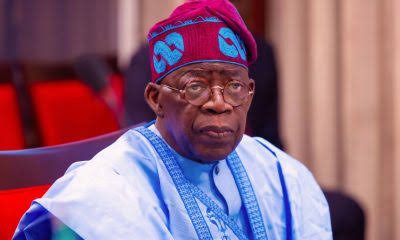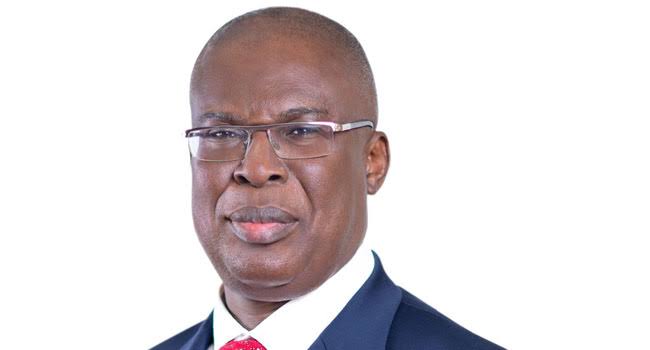- Nigeria‘ll be in deeper trouble if we don’t cut waste, Obaseki warns
BY FESTUS OKOROMADU, ABUJA
The Senate has said that President Bola Tinubu will present the 2024 budget estimates to the National Assembly in November for consideration and passage before the end of the year.
The Chairman, Senate Committee on Appropriation, Solomon Adeola, explained this in an interview with journalists after the inaugural meeting of his panel on Wednesday.
The senator, who is representing Ogun West Senatorial District, said the National Assembly is expecting the Federal Government to present the Medium Term Expenditure Framework and Fiscal Strategy next week for proper scrutiny.
Adeola also hinted that his panel had invited the Minister of Finance, who is also the Coordinating Minister of the Economy, Wale Edun, and his counterpart in the Ministry of Budget, Atiku Bagudu, for a meeting next Wednesday.
He assured Nigerians that the National Assembly would try as much as possible to make sure that the 2024 budget consists of 55 per cent capital expenditure.
Adeola said the 10th Senate would maintain the January to December budget cycle, which the 9th National Assembly started.
He said, “I want you to take cognisance of the change of government on May 29. There is a teething problem because there is a change of government.
“The new administration has a new mantra that encapsulates its vision and there must be challenges. We will do a thorough job on the budget.
“Our job is to verify the budget to meet the expectations of the people. We will look into it thoroughly.
“We are expecting the MTEF next week and immediately we receive the document, the Committee on Finance will go into work and look into it.
“The Finance Minister and the Minister of Budget and Planning are working round the clock.
“I assure you that we won’t break the tradition, we will have the budget as and when due. We will keep to the tradition of the January to December budget cycle.”
The senator said there was nothing like padding in budget processing.
He said, “It has to do with the nomination of a project to the budget document that will meet the yearnings and the needs of the people, I would not regard that as padding.
“It is still part of the government document we look into and it has an expectation. Budget is an estimate but implementation is another thing. So I don’t believe in budget padding, it never exists in my dairy.”
Nigeria‘ll be in deeper trouble if we don’t cut waste, Obaseki warns
However, the Edo State Governor, Godwin Obaseki, has raised the alarm over the high rate of wastage in government, especially at the federal level, warning that the country will be in deeper trouble unless the nation takes deliberate steps to cut down waste.
This is as the governor reeled out the gains of his administration’s e-governance system, calling for the digitalisation of government processes across all levels of government in the country, in order to ensure transparency and reduce cost.
Obaseki spoke as a panelist during a plenary on “Reinventing Government: Digitalisation of Public Institutions,” at the 29th Nigerian Economic Summit, in Abuja.
The governor said, “We need to reinvent governance. You can’t reinvent government unless you digitalise and open up your systems. We have no option. We have to be efficient.
“We have to be efficient to support production. Especially at the Federal Government level; the waste is too much and unless we change, we will be in trouble. In fact, we are already in trouble and if we don’t change, we will be in deeper trouble.”
Obaseki, while sharing his Edo State e-governance experience at the event, said digitalisation of government required the political will and commitment of the political leaders because of resistance from civil servants.
He noted that sometimes even when the political leader has a well-thought-out and noble policy, getting the civil servants to implement the same was a challenge and in his case, he had to insist.
The governor stated that until the digitalisation exercise in Edo State, civil servants, public office holders, and the executive operated in silos, adding that the story has now changed.
The Obaseki-led state government, over the past seven years, has pursued bold and transformative reforms to digitise work processes in the civil and public service, transiting service delivery from an archaic, analog, and strenuous mode to a digitised, seamless, and efficient mode.
All files are now processed through the service-wide e-government platform, ensuring quick turnaround time.
Today, Edo State is the most digitally connected in Nigeria and operates the most digitised civil and public service, with all local governments connected to fibre optics.
Edo State is also the first in the country to have entirely shifted to a digital mode of administration.

